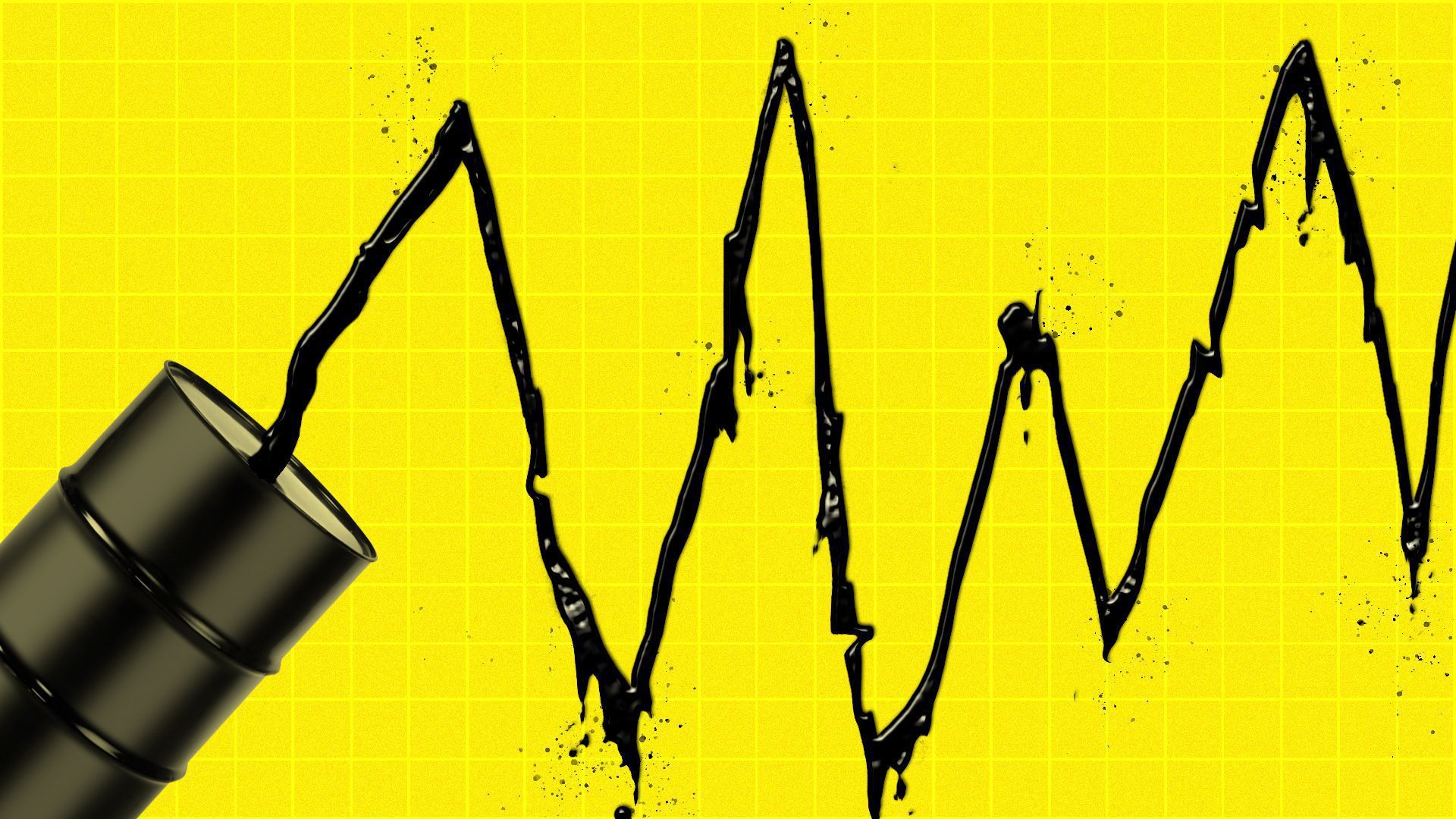$100+ oil is the new reality after Russia's Ukraine invasion
Add Axios as your preferred source to
see more of our stories on Google.

Illustration: Shoshana Gordon/Axios
Energy costs continue to spiral higher, with U.S. and European crude benchmarks both leaving the century mark in the dust.
By the numbers: West Texas Intermediate, the U.S. oil benchmark, rose to as high as $111.50 early Wednesday, according to FactSet data.
- Brent crude, the European reference point for oil, nearly climbed to $113 in early trading.
- This is the highest oil prices have been since August 2013.
What it matters: Surging crude oil costs underscore how sanctions aimed at Russia could also hurt the domestic economies of the Western nations that imposed them.
What's happening: The war.
- Russia is the world's third-largest producer of crude oil — the Russian benchmark grade is known as Urals — and its second-biggest exporter, sending nearly 8 million barrels per day onto the world market last year.
- A combination of sanctions and commercial decisions by shippers and insurers to steer clear has cut that contribution to global supplies sharply over the last week.
What they're saying: "Proposed sanctions that would either blacklist Russian oil supplies or blacklist the financial tools to purchase Russian crude is already hitting Urals crude," wrote analysts at energy consulting firm Rystad in a client note on Tuesday.
- With buyers taking fewer barrels of Russian oil, those purchasers are driving prices higher elsewhere.
Yes, but: That's a geopolitical victory, depriving Russia of revenue it desperately needs to keep its economy functioning. Still, it comes at a cost.
- With rich nations still grappling with post-pandemic inflation, surging oil costs — a key determinant of gasoline prices — will only make the prices pinching voters that much more irritating.
- If the daily drama of the war in Ukraine starts to fade from public view, and inflation persists, the political costs of inflation could test the unity that the West has shown in its stance toward Russia
What we're watching: How effective Western leaders are at convincing their populations to bear the pain associated with taking action against Russia — or at mitigating it.
- On Tuesday, the U.S. and other members of the International Energy Agency said they would release 60 million barrels of oil reserves.
- U.K. Prime Minister Boris Johnson this week warned of Britain's vulnerability to an energy shock.
- And last night at his State of the Union address, President Biden noted that the U.S. would release 30 million of its strategic reserves as part of the IEA effort and would "do more if necessary, unified with our allies."
Go deeper: No relief in sight at the pump as gas prices surge
